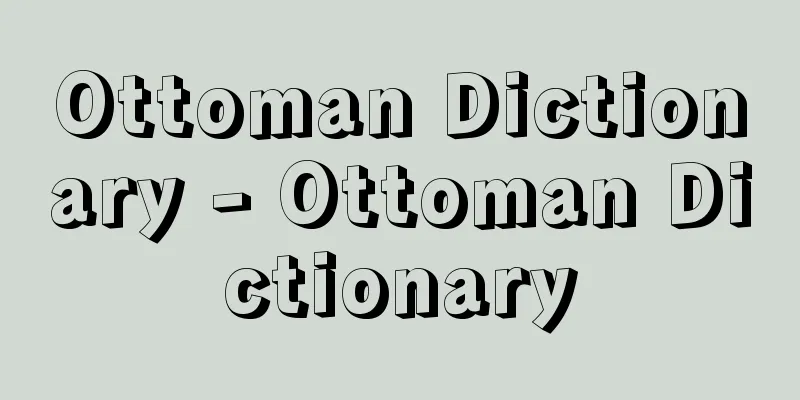The legend of the rich man

|
There are many legends about the ruins of a mansion where a rich man once lived, about burying gold, and so on. They are found all over Japan, and are written in miscellaneous books, geographical records, and essays from the early modern period. Most of them tell of how the rich man fell into ruin. For example, there is a story from Muro Village, Uda County, Nara Prefecture (present-day Muro, Uda City, Nara Prefecture) that says that Takino Choja, who was alone after his two children ran away from home, threw his treasures into the pool at the bottom of the waterfall and committed suicide. Later people tried to steal the pool, but gave up because there was always a thunderstorm. The large stone at the bottom of the waterfall still exists, and it is said that you can hear the crowing of roosters on New Year's Day. In the heyday of Takino Choja, when the rice planting in Senkarita on the border between Yamato and Iga was in full swing, the sun would set before the rice planting was finished because the fields were so large, so the rich man used a golden fan to invite the sun back, but Senkarita was no longer able to produce rice. Lake Koyama in the north of Tottori City was once the rice field of the Koyama Choja, and on rice planting day, he had the young girls from all over the country plant the rice, but it was too late, so he called in the sun with a golden fan to complete the planting, and as a result, the rice fields in his domain turned into a lake overnight. It is said that Asahi Choja of Hojo Town, Kasai County, Hyogo Prefecture (now Kasai City) also died instantly due to the same legend. In the legend of the third generation of the Choja, which is handed down in Chichibu County, Saitama Prefecture, the third generation Choja treated his ancestors' wealth to the wealth of others, had them cut bracken in Chichibu, and called back the sun with a fan at sunset, but was unable to harvest it all, so he called out again and again with the fan, and each time, one by one, the Choja's family members disappeared, until finally there was nothing left of the Choja and his house. The Uga Choja of Nagahama-cho, Kochi Prefecture, discovered a sacred spring with the blessing of the water god and became wealthy, but lost his fortune overnight due to arrogance. In Shiki County, Nara Prefecture, a man discovered a golden jar under sweet potatoes and prospered as Imomaru Choja, but his family fell into ruin after just two generations. The shrine that remains today is said to be the site of his mansion. There are also many similar folk songs that indicate the place where the gold was buried "under the setting sun shining in the morning sun." All of the legends share a roughly common plot, and it seems that they were originally systematic legends that, during the course of propagation, became fragmented and merged into local folklore. It is also said that monks were involved in their propagation. [Shogo Watanabe] [Reference] |Source: Shogakukan Encyclopedia Nipponica About Encyclopedia Nipponica Information | Legend |
|
かつて長者が住んでいたというその屋敷跡とか、黄金を埋めたとか、それにまつわる伝説。日本全国に分布していて近世の雑書・地誌・随筆類にも少なからず記されている。ほとんどが、長者がいかに没落したかを語るものである。たとえば、奈良県宇陀(うだ)郡室生(むろう)村(現奈良県宇陀市室生)のそれは、2人の子が家出し孤独になった滝野長者が財宝を滝つぼに投げ込み自殺したというもの。後の人が滝つぼをさらおうと試みたが、かならず雷雨があるので中止したという。滝つぼの大石は現存して元旦(がんたん)には鶏(とり)の声が聞こえるという。滝野長者の全盛期には大和(やまと)・伊賀国境の千刈田(せんかりた)の田植に、田があまり広いために田植が終わらぬうちに日没となるので、長者が金扇をもって日を招き返したところ、千刈田は米ができなくなってしまったと伝える。鳥取市北部の湖山池は、昔の湖山長者の田であった所で、やはり田植の日に、国中の早乙女(さおとめ)に植えさせてもまにあわず、金扇で太陽を差し招いて田植を完了したが、そのため所領の水田は一夜で湖と化したと伝える。兵庫県加西(かさい)郡北条町(現加西市)の朝日長者も同じ伝承によって即死したという。埼玉県秩父(ちちぶ)郡に伝わる長者伝説は、3代目の長者が先祖の富貴をおごり、秩父中の蕨(わらび)を刈らせて、日没に日輪を扇で招き返したが取り尽くせず、たびたび扇で招き、そのたびに長者の家族が1人ずつ消えてゆき、ついに長者も屋敷もなくなったという。高知市長浜町の宇賀長者は、水の神の恩恵で霊泉を発見し、富裕となるが、驕慢(きょうまん)のために財を一夜にして失う。奈良県磯城(しき)郡のそれは、芋(いも)の下に黄金の壺(つぼ)を発見し芋丸長者として栄えたが2代で滅びる。今日に残る祠(ほこら)はその屋敷跡と伝える。そのほかに俗謡で、「朝日輝く夕日のもとに」黄金を埋めたという場所を示した類歌も多い。どの伝説もおよそは共通した筋(すじ)で、もともと系統だった伝説が、伝播(でんぱ)の間に断片として地元の伝承に化合してしまった話と思われる。その伝播には僧侶(そうりょ)が荷担していたともいう。 [渡邊昭五] [参照項目] |出典 小学館 日本大百科全書(ニッポニカ)日本大百科全書(ニッポニカ)について 情報 | 凡例 |
Recommend
Nile crocodile - Nile crocodile
A crocodile of the family Crocodylidae, order Cro...
Mount Hotaka
Located on the border between Nagano and Gifu pre...
Wang Yi - Wang Kai
...In light of this, as Korean scholars claim, th...
Bicyclette
… The first person to produce a safety-type bicyc...
Tuna fishing boat
...The main fishing boats are explained below. (1...
Mount Iwasuge
A mountain in the Shiga Plateau in the northeaste...
Damask - damask (English spelling)
It has the same weave as donsu, but the ground an...
Androgen
…the male sex hormone, also known as the androgen...
toaster
...a tool for toasting bread. In Europe and the U...
Konasubi (small eggplant) - Konasubi (English spelling) Lysimachia japonica
A perennial plant of the Primulaceae family. Widel...
Conductive materials
A material intended to conduct electric current w...
Green Peas
An international environmental protection organiza...
Chamois - Chamois (English spelling)
It is an animal of the order Artiodactyla, family...
Ant's egg moss (English spelling) antseggmoss
...Ikubigoke means "boar's-necked moss&q...
Shadow Wall
〘noun〙① In Chinese architecture, a wall made of ra...









